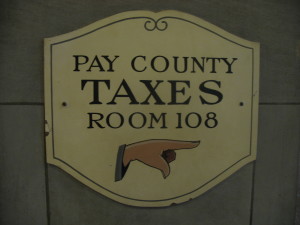Tax Planning for Retirement: Efficient Strategies for a Secure Financial Future
Planning for retirement involves several financial considerations, including aligning your long-term tax strategy with your retirement goals. Efficient tax planning for retirement can minimize your tax burden and maximize your savings, ensuring a stable and comfortable future.
Let’s explore crucial retirement tax planning strategies. We’ll cover using tax-advantaged accounts, managing income sources, and understanding tax implications, especially related to Social Security benefits. We’ll also highlight the advantages of working with Practical Taxes, a professional tax service in Billings, MT, offering personalized guidance for your retirement planning journey.
Practical Taxes is dedicated to helping Billings residents create comprehensive retirement tax plans. We incorporate strategic tax-saving techniques and provide personalized support to achieve your financial objectives. Keep reading to discover valuable retirement tax planning strategies and how Practical Taxes can secure your financial stability.
Utilizing Tax-Advantaged Accounts for Retirement Savings
One of the most effective tax planning strategies for retirement involves utilizing tax-advantaged accounts to grow your retirement savings. Investing in accounts such as 401(k)s, IRAs, and Roth IRAs allows you to take advantage of various tax benefits that can significantly impact your long-term financial success. Consider the following options:
Traditional 401(k) and IRA: Contributions to these accounts are tax-deductible in the year they are made, and earnings within the account grow tax-deferred until withdrawn during retirement. Distributions during retirement are then taxed as ordinary income.
Roth 401(k) and Roth IRA: Contributions to these accounts are made with after-tax dollars, but earnings grow tax-free, and qualified withdrawals during retirement are not subject to taxation. Roth accounts can be particularly beneficial for individuals anticipating higher retirement tax rates.
Proactively contributing to these accounts and understanding the tax implications of each can help you maximize your retirement savings and minimize your long-term tax liabilities.
Managing Income Sources to Optimize Tax Efficiency
Another essential strategy to minimize your tax burden during retirement is to manage your income sources efficiently. Different types of income may be taxed at different rates, so managing withdrawals and the timing of income strategically can lead to significant tax savings.
Taxable Accounts: Withdrawals from taxable accounts, such as brokerage accounts, may be subject to capital gains taxes. However, long-term capital gains rates are lower than ordinary income tax rates, offering potential tax savings.
Required Minimum Distributions (RMDs): Traditional 401(k)s and IRAs have required minimum distributions starting at age 7These withdrawals are taxed as ordinary income, and careful RMD management is essential to avoid unintentionally pushing you into a higher tax bracket.
Social Security Benefits: Depending on your income level, a portion of your Social Security benefits may be taxable. Efficiently managing the timing of these benefits and coordinating them with other income sources can help minimize taxation.
Consulting with a tax professional can help you create a strategic plan for managing your income sources during retirement, optimizing your tax efficiency, and preserving your wealth.
Understanding the Tax Implications of Social Security Benefits
Social Security benefits play a crucial role in many retirees’ income plans, so it’s critical to understand the tax implications associated with these benefits. Depending on your taxable income, a portion of your Social Security benefits may be subject to federal income tax.
Thresholds for Taxation: Social Security benefits are tax-free for those earning below certain income thresholds ($25,000 for individuals and $32,000 for couples filing jointly). Once those thresholds are exceeded, benefits become partially taxable up to 50% or 85% based on different income levels.
Manage Taxable Income: To minimize the taxation of Social Security benefits, manage your taxable income by strategically timing withdrawals from retirement accounts, taking capital gains, and adjusting your income sources.
State Taxes on Social Security: Some states also tax Social Security benefits, while others do not. Research your state’s rules or consult a tax professional to understand state tax implications.
Working with a tax professional can help you navigate the complex tax rules associated with Social Security benefits, ensuring you minimize your tax burden and maximize your retirement income.
The Benefits of Partnering with a Professional Tax Service for Retirement Planning
Working with a professional tax service like Practical Taxes can provide valuable benefits for individuals planning for retirement, including:
Personalized Tax Planning: Obtain expert guidance on creating a tailored tax plan that aligns with your specific retirement goals, ensuring tax efficiency and long-term financial success.
Ongoing Support: Receive ongoing support and advice as your retirement plan changes, helping you adapt your tax strategies as needed.
Tax Return Preparation: Ensure your tax returns are accurate and compliant throughout your retirement by partnering with skilled tax professionals specializing in retirement tax planning.
Building a Secure Financial Future with Strategic Tax Planning for Retirement
Effective tax planning is critical to creating a secure and comfortable retirement. By utilizing tax-advantaged accounts, managing income sources, understanding the tax implications of Social Security benefits, and partnering with a professional tax service like Practical Taxes, you can build a solid financial foundation for your future.
Contact our team of experienced tax professionals in Billings, MT, today to learn more about our comprehensive tax services for retirement and discover how we can help you achieve your financial goals by strategically managing your retirement tax obligations.



